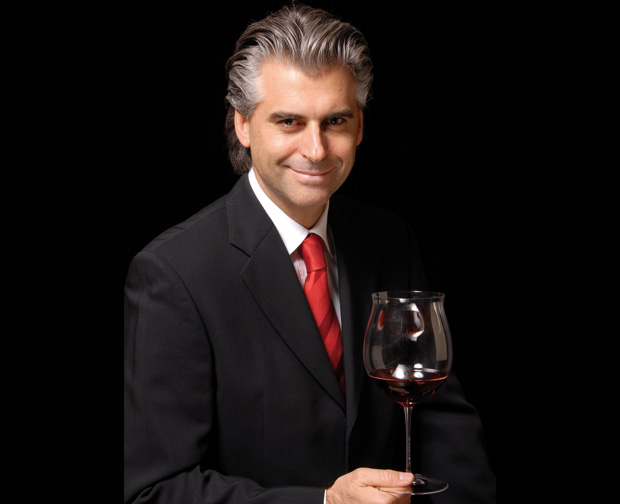Wolfgang Angyal was born in Kufstein, Austria, the very village that is home to the headquarters of the wine glass company Riedel. Angyal first came to Japan in 1985 when he was working in a hotel in Austria and visited Osaka as a representative of his country in the 28th WorldSkills Competition, where he won the gold medal in the Restaurant Service category. His first experience of Japan encouraged him to return, and in 2000 Angyal became president of Riedel Japan. The Austrian is well known as the first person in Japan to teach in fluent Japanese the importance of using the right glasses when enjoying wine.
How has your perception of Japan changed over your time here?
I arrived in Japan in the late 1980s when the bubble was in full swing. I was too young to participate, but could still get a glimpse of things that one can probably experience in China or the UEA now. Today Japan has become a bit more like Europe in many ways, including the good and some of the not so good, but it is certainly a more comfortable and enjoyable place to work and live than 20 years ago. I remember working right in the heart of Marunouchi in the early ‘90s. You would not have wanted to walk the streets if you did not have to. It was all a maze of different shades of grey, from buildings, offices to people, and I was told Japanese don’t like to spend time in outdoor cafes — but look at it today.
What about your first trip to Japan encouraged you to return?
The World Skills competition only lasted for a week, but I sensed a strong affinity with the people and culture. One of the main challenges for competitors from all over the world was to effectively “communicate” with the Japanese assistants that one had access to in order to complete the various tasks. And since none of them spoke any language I could understand, one had to use non-verbal means to get messages through. Other competitors may have had a technical edge, but most seemed to have had a lot more difficulty communicating. Looking back, I guess that’s how I ended up with the gold medal.
What have been your greatest successes living and working in Japan?
After a year working as a guest lecturer at Tsuji Academy in Osaka and making every possible mistake in ‘88, I finally discovered that there is no benefit in being an elephant walking through the porcelain shop. A more subtle approach proved far more effective. After realizing that, things went pretty much on course on the business front. Riedel, which was virtually unknown when I started in ‘89, went from a one-man band to a highly recognized brand in Japan, and a company with several business divisions and seven directly operated stores. But meeting my Australian wife in Tokyo in ‘92 was certainly the highlight.
What is the greatest obstacle you’ve encountered doing business here?
Apart from the fact that things may take three times as long and are usually still twice as expensive, I find that to effectively communicate Japan-specific complexities to those without cultural reference points still to be the biggest challenge.
What’s been the most surprising thing that you’ve learned in Japan?
That almost nothing is impossible under the right circumstances. Once you get to know the unwritten rules in Japan and start working with them instead of against them, things that you never thought possible can just fall into place.
You are credited with introducing the importance of the glasses used when drinking wine — what other aspects of wine culture still need to be improved here?
Wine appreciation in Japan certainly has come a very long way. Today, the general public’s understanding and desire to learn about wine in Japan is quite high compared to other countries. But at the same time, people still often just drink the “labels” or follow other people’s tastes rather than to trust their own palate. I frequently meet people telling me how many Riedel glasses they have, but they often seem to miss the whole point, thinking that its OK just to use the best brand, instead of actually discovering the difference that the various varietal shapes can make to really get the most out of their favorite wines. So there is certainly still enough for us “wine educators” left to do in the future.
External Link:
Riedel Japan









